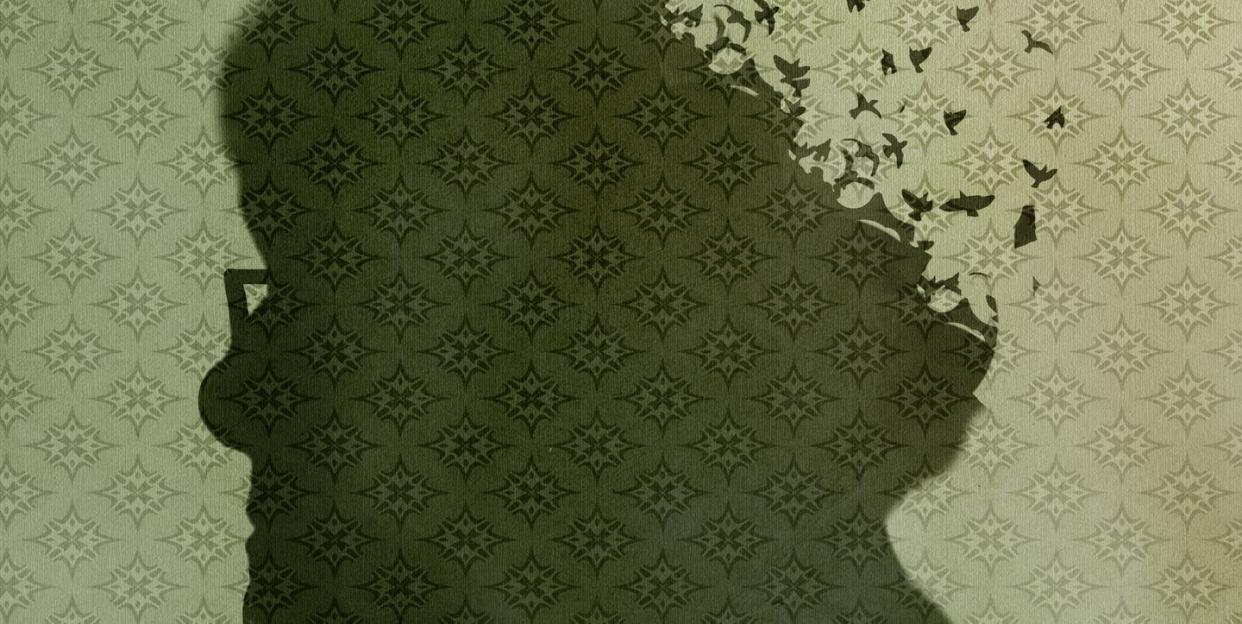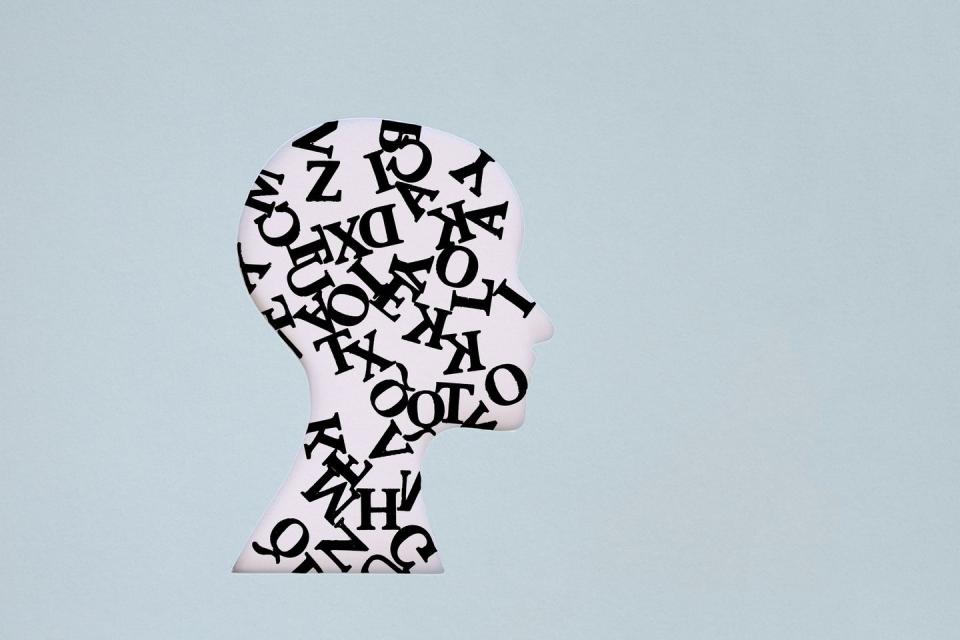Alzheimer’s and Women: How to Protect Yourself

Imagine waking up one day and not recognizing the person sleeping next to you. Imagine thinking that you are in another time and not knowing where you are or remembering where you were going.
These are the symptoms of dementia and Alzheimer's disease, and, by current estimates, more than nine million women will struggle with some form of it by 2050.
As the Mayo Clinic describes it, Alzheimer’s disease is a “progressive disorder that causes brain cells to waste away and die. Alzheimer's disease is the most common cause of dementia — a continuous decline in thinking, behavioral and social skills that disrupts a person's ability to function independently,” and according to a 2020 report by the Alzheimer's Association, there are 5.8 million Americans currently living with Alzheimers. Of those, two-thirds are women.
Maria Shriver, the former first lady of California and a well-known and respected journalist, has been a long-time advocate for families dealing with Alzheimer's. She is the founder of the Women’s Alzheimer’s Movement or WAM, an organization she began while her ex-husband, Arnold Schwartzenegger, was Governor of California. She was personally impacted by Alzheimer's when her father, the famous diplomat Sargent Shriver, was diagnosed and later passed away from the disease in 2011.
Ten years ago, WAM released its first study that showed that women are disproportionately affected by the disease. In May this year, WAM and the Alzheimer's Association released statistics that show that the lifetime risk for a woman to develop Alzheimer's (after age 45) is estimated at one in five; for men, it is one in 10. Why Alzheimer’s is more common among women is still a mystery, as women have been excluded by most studies on Alzheimer’s historically.
“This is the Mount Everest of diseases,” Shriver says in our telephone interview. “Alzheimer’s disease disproportionately affects more women than men. Very little is known about us as we age because women haven't been a part of the research. There's a tremendous research gap."
Yet women make up 60 percent of dementia and Alzheimer's caregivers, according to the data from WAM and the Alzheimer's Association. Shriver says that in many ways, science has mostly dismissed women who suffer from or end up as caregivers for those who suffer from the disease.
"It's one of those things where I feel like I have been talking into the air about this subject for ten years," Shriver says, "and I only feel like it's recently starting to land."
What You Need to Know About Alzheimer’s
Alzheimer's symptoms vary from person to person, and they vary between the sexes, too. It's generally thought of as a disease of age, but increasing evidence shows that symptoms can show up decades before a diagnosis. Dr. Marie A. Bernard is the Deputy Director for the National Institute on Aging or NIA. In her role, she helps manage $3.1 billion that goes towards research on aging, dementia, and Alzheimer's research.
“Memory problems are typically one of the first signs of cognitive impairment related to Alzheimer’s disease.” Dr. Bernard says. “Distinguishing early memory problems due to Alzheimer’s and other dementias as opposed to cognitive decline with aging can be tricky. If there is concern, there should be a discussion with a primary care provider. Decline in non-memory aspects of cognition, such as word-finding, vision/spatial issues, and impaired reasoning or judgment, may also signal the very early stages of Alzheimer’s disease. And some people may be diagnosed with mild cognitive impairment. As the disease progresses, people experience greater memory loss and other cognitive difficulties.”

Early symptoms of Alzheimer's typically appear as small things — forgetting important dates, increasingly relying on notes or digital reminders, and asking the same questions over and over. These symptoms are different from age-related changes, according to the Alzheimer’s Association, and WAM says that the signs can show up in women as young as 30.
"Alzheimer's symptoms can show up to 20 years before an official diagnosis," Shriver says. "Increasingly, younger women are going to be touched by this disease, whether they start to exhibit symptoms themselves, or they have to take care of loved ones who are starting to show early signs."
Dr. Bernard says that there are a few things to watch out for that could be the early signs of dementia and possibly Alzheimer’s. They include:
Memory loss
Poor judgment leading to bad decisions
Loss of spontaneity and sense of initiative
Taking longer to complete normal daily tasks
Repeating questions
Wandering and getting lost
Losing things or misplacing them in odd places
How to protect yourself, and your loved ones, from Alzheimer’s
While there is no cure for Alzheimer’s, and it is fatal, there are certain indicators that could increase your, or your loved ones’ chances of developing the disease. For one, Dr. Bernard says that studies have shown a higher correlation between hypertension (high blood pressure) and dementia risk amongst women (but not in men). She also says that women who have a specific gene, APOE4, have a higher risk of developing Alzheimer’s.
“We know that women with this same genetic variant tend to show more pronounced decline in their ability to do attentional tasks, whereas men with the same genetic variant tend to show more pronounced declines in memory and executive function,” Dr. Bernard says.
While there is no sure-fire way to prevent Alzheimer’s and dementia, there are certain lifestyle changes that you can make to potentially lower your risk.
“A healthy lifestyle — one that includes a healthy diet, physical activity, and appropriate weight maintenance, and no smoking — can lower the risk of certain chronic diseases and conditions. These include heart disease, high blood pressure, and diabetes, which can increase the risk of Alzheimer’s disease. We know that maintaining a healthy lifestyle boosts overall health and well-being. Scientists are very interested in the possibility that a healthy lifestyle might delay, slow down, or even prevent Alzheimer's. They are also studying the role of social activity and intellectual stimulation in Alzheimer's disease risk,” Dr. Bernard says.
The NIA is actively supporting several studies focused on determining what lifestyle changes might be needed to stave off Alzheimer's. Still, these studies require many years to complete since symptoms come on gradually and are often thought to be age-related and not disease-related.

“As we accumulate more and better evidence for this and other lifestyle modifications, we will be able to provide much better and more definitive advice on steps an individual can take to remain cognitively healthy,” Dr. Bernard says.
She also says that to get better data and really affect change and fight the disease, more people need to sign up for studies.
“NIA has a wealth of resources about Alzheimer’s disease for people who may be concerned about their own or a loved one’s health. In addition to maintaining a healthy lifestyle, one of the key activities women can do to help increase our understanding of how to prevent and effectively treat Alzheimer’s disease is to participate in research. It is imperative that we have more women, particularly African American, Hispanic, Asian, and Native American, participate in clinical studies. Alzheimer’s is a complex disease that affects people differently, so to make sure we are on the path to developing effective prevention strategies and treatments that work for everyone, we must have a diverse group of people participate in research,” she says.
Shriver agrees and says that she wishes she knew more about the process of aging and even menopause when she was younger. In perimenopause, or the phase before women enter menopause, hormone levels begin to change, and those changes can affect your brain chemistry and your chances of developing dementia and Alzheimer’s.
"I wish I had known at 40 what I know now about perimenopause. I wish I had known about the connection between my brain and my body and how the process is really a cognitive change as well as physical change. A woman facing perimenopause might struggle with sleep and emotions, but it's not just losing your period," Shriver says. "You are losing estrogen from your brain. It's important to learn about that and find out when the right time might be for you to go on hormones."
“If you think you were unprepared for COVID-19, we are already unprepared for Alzheimer's." Shriver continues. "Funding for research matters, electing officials who believe in funding matters, this is an apolitical and professional and a personal issue. We have to empower people, especially women, to know what they can do, and we all need to take responsibility for our brain health."
Abigail Bassett is an Emmy-winning journalist, writer and producer who covers wellness, tech, business, cars, travel, art and food. Abigail spent more than 10 years as a senior producer at CNN. She’s currently a freelance writer and yoga teacher in Los Angeles. You can find her on Twitter at @abigailbassett.
Get Shondaland directly in your inbox: SUBSCRIBE TODAY
You Might Also Like


